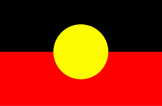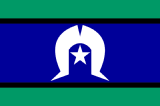Children and young people residing in foster care have a range of needs. Foster carers are provided with a care allowance to contribute to the costs of caring for children and young people. There is no concrete tool for “classifying” children according to the levels of care allowance; rather there is a process of assessment which occurs between the foster care agency, DFFH Child Protection and the DFFH Placement and Coordination Unit (PCU).
Background:
The provision of a particular care allowance rate is based on:
an assessment of the level of complexity of the child or young person’s care needs, and
the child or young person’s age.
Care allowance levels are structured to reflect the complexity of a child's care needs, with higher levels allocated for more complex needs. Within each level, the care allowance is incrementally increased based on the child or young person’s age. Age categories for these increments are: 0-7 years, 8-10 years, 11-12 years, and 13 years +. Prior to placement of a child or young person with a carer, agreement should be reached between the agency and the Placement Coordination Unit (PCU) as to the most appropriate care allowance level based on the needs of the child.
The annual Education and Medical Expense allowance is incorporated within eligible fortnightly care allowance payments. The School Attendance allowance is paid to foster and statutory kinship carers to contribute to education expenses for children and young people. Whilst foster carers are not required to formally account for the expenditure of these two allowances, there is an expectation these will be fully allocated to the child or young person’s medical or educational expenses prior to any requests for additional funds being made in this regard.
Carer Allowance Rate Review:
If foster carers believe that their current care allowance rate requires re-classifying, they should raise the issue with their agency to ensure the most appropriate process is followed to better meet the child or young person’s needs.
Care allowances are not necessarily the only means through which additional care needs can be met. Each DFFH division has a set amount of supplementary (additional) funds and resources to support children and young people in out of home care. It is essential that foster carers liaise with their agency to follow proper processes for seeking additional/supplementary funds and not incur an expense prior to costs being agreed to.
Other Resources:
The FCAV has two helpful information sheets, the Services Australia Entitlements and the Education Supplement, which provide advice on financial and other support available for the care of children and young people. These can be emailed to carers on request.
The DFFH website provides further information and advice with a link to the Financial support guide for home-based carers at Support for home based carers in Victoria - DFFH Services
DFFH Care Allowance Helpdesk:
Whilst foster carers would usually have care allowance queries answered via their agency, there is sometimes a need to check specific financial information about the nature of the care allowance payment.
The Helpdesk is designed specifically for this purpose. Helpdesk staff can answer your questions about when your payments are starting, when they will cease, any money owed to you or by you, information about indexation and any additional allowances, such as the New Placement Loading (only available for level one care allowance General Care category only), or Education and Medical allowance.
The Helpdesk is staffed by DFFH staff. Helpdesk staff are not part of the child protection program and will therefore not be able to discuss child protection related issues, nor are they able to conduct reviews of care allowance levels.
Carers can contact the Helpdesk on 1300 552 319 or email caregivers.mgt@dhhs.vic.gov.au
Tax:
The care allowance is not classified as income and does not have to be declared as earnings for the purposes of Income Tax, Family Tax Benefit or Child Support through the Commonwealth Government, or housing/personal loan assessments through financial institutions.


